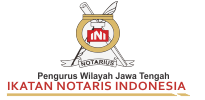The Use of Bill of Leading in the Transportation of Ships according to the Contract & Indonesian Law Perspective
Abstract
In transportation, the most important type of document is the bill of lading. It is called the most important document because, if there is a problem with the goods shipped or exported, the B/L has not been sent by the carrier, then the owner of the goods cannot make a claim to the carrier. Bill of lading or known as bill of lading is regulated in Article 506 of KUHD. This research uses a normative juridical research method with an analytical descriptive approach. Bill of Lading in sea transportation based on Indonesian law serves as proof of ownership of goods, and also as evidence of a transportation contract. Various documents that exist and are required in international trade transactions are grouped into the following categories: Preliminary documents, Main documents, Other important documents (additional documents). The Bill of Lading document is a document as one of the requirements for drawing up a Letter of Credit. The opening of a Letter of Credit is basically a contract and the agreed conditions regarding the withdrawal of a Letter of Credit must be fulfilled, such as the Bill of Lading document.
Keywords
Full Text:
PDFReferences
Frank Stevens. The Bill of Lading: Holder Rights and Liabilities. Bosa Roca, United States: Taylor & Francis, 2017.
Gunawan Widjaja and Kartini Muljadi, Bonds Born of Law, (Jakarta: PT. RajaGrafindo Persada, 2003).
Gunawan Widjaja, Ahmad Yani, Fiduciary Guarantee, (Jakarta: Raja Grafindo Persada, 2011.
Hidayat, Safril, and Ridwan. 2017. 'Maritime Axis Policy And Indonesian National Security: Challenges And Hope Maritime Axis Policy And Indonesian National Security: Challenges And Hope', Journal of Defense & State Defense, 2017.
Junef Muhar, Law Enforcement in the Framework of Spatial Planning to Realize Sustainable Development, De Jure Journal of Legal Research, Volume IV, 2018.
Kitab Undang-Undang Hukum Dagang (KUHD). Law Number 10 Year 1995 on Customs.
Law No. 17/2006 on the Amendment to Law No. 10/1995 on Customs.
Law Number 11 Year 1995 on Excise.
Law Number 39 Year 2007 on the Amendment to Law Number 11 Year 1995 on Excise. Law Number 7 Year 2014 on Trade.
M Yahya Harahap, Aspects of treaty law, (Bandung: Alumni, 1982).
Purwosutjipto, Basic Understanding of Indonesian Trade Law 3, Shipping Law, Djambatan, Jakarta, 1991.
R Subekti, Law of Agreement, Jakarta: PT Intermasa, 2015.
Regulation of the Minister of Trade No. 94/2018 on Provisions for the Use of Letter of Credit for Export of Certain Goods ("MOT 94/2018")
Salim H.S, Contract Law Theories and Contract Drafting Techniques, (Jakarta: Sinar Grafika, 2010).
Santoso Sembiring, Law of Sea Transportation (Bandung: Nuansa Aulia, 2019).
Sanusi Bintang and Dahlan, Principles of Economic and Business Law, (Bandung: PT. Citra Aditya Bakti, 2000).
Susetyorini, 'Indonesian Maritime Policy in the Perspective of Unclos 1982', Legal Issues, 2019. Wirjono Prodjodikoro, Principles of Agreement Law, Bandung: PT Sumur, 1981.
Uniform Customs and Practise for Documentary Credit (UCPDC) No 500 of 1993. Supreme Court Decision Number 716/K/Pdt/1984.
DOI: http://dx.doi.org/10.30659/akta.v11i3.39817
Refbacks
- There are currently no refbacks.
Copyright (c) 2024 JURNAL AKTA

This work is licensed under a Creative Commons Attribution-NonCommercial-NoDerivatives 4.0 International License.
Jurnal Akta has been indexed by:
Editorial Office: Jurnal Akta Room 2nd Floor Imam As Syafei Building Faculty of Law Universitas Islam Sultan Agung. Jln. Kaligawe KM. 4, Semarang City, Central Java, Indonesia. Phone +62 24 6583584 Fax +62 24 6582455
Email: jurnalakta@unissula.ac.id

![download[4]](https://jurnal.stiki-indonesia.ac.id/public/site/images/adminjurnal/template_jurnal_tosca1.png)














